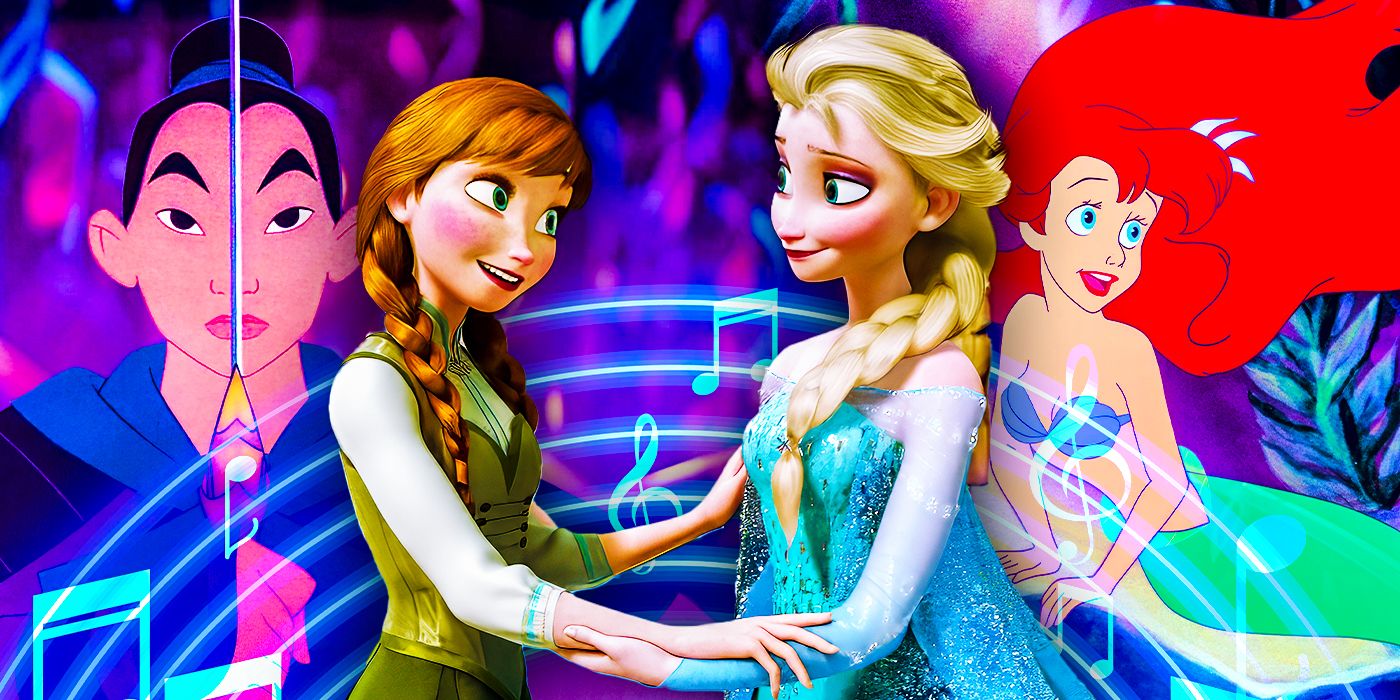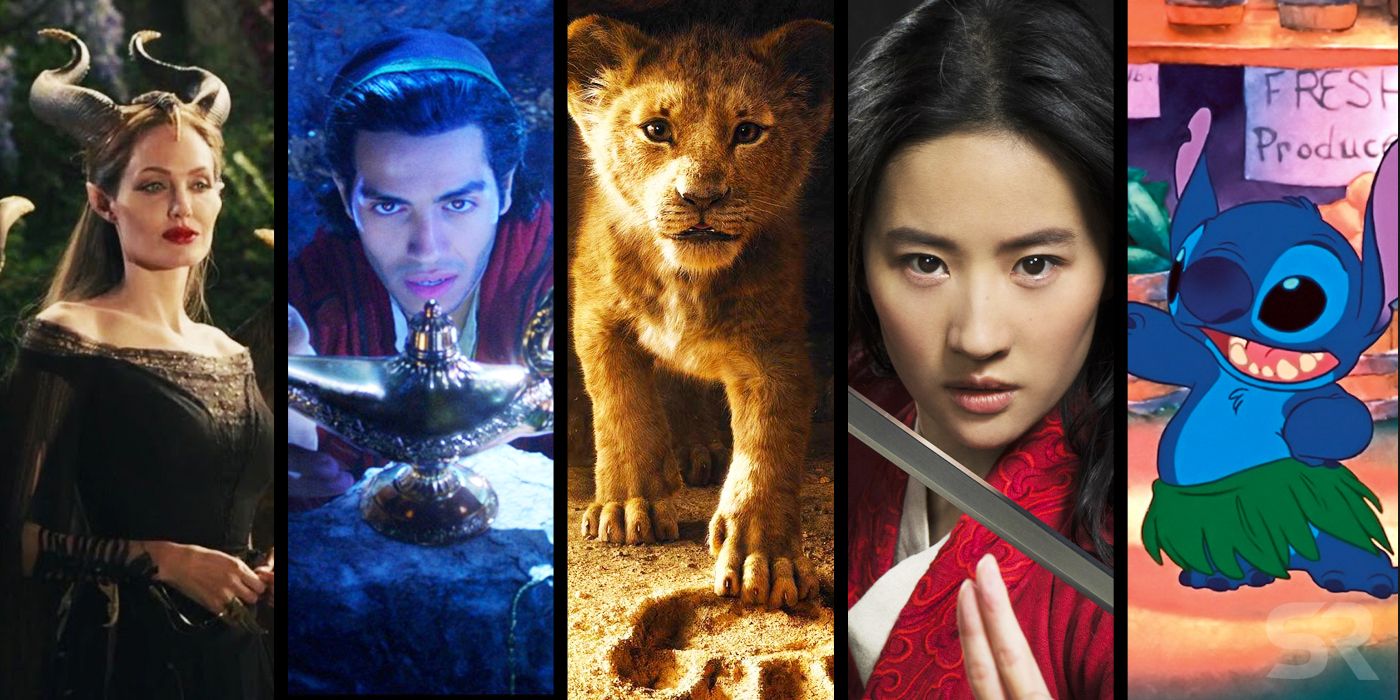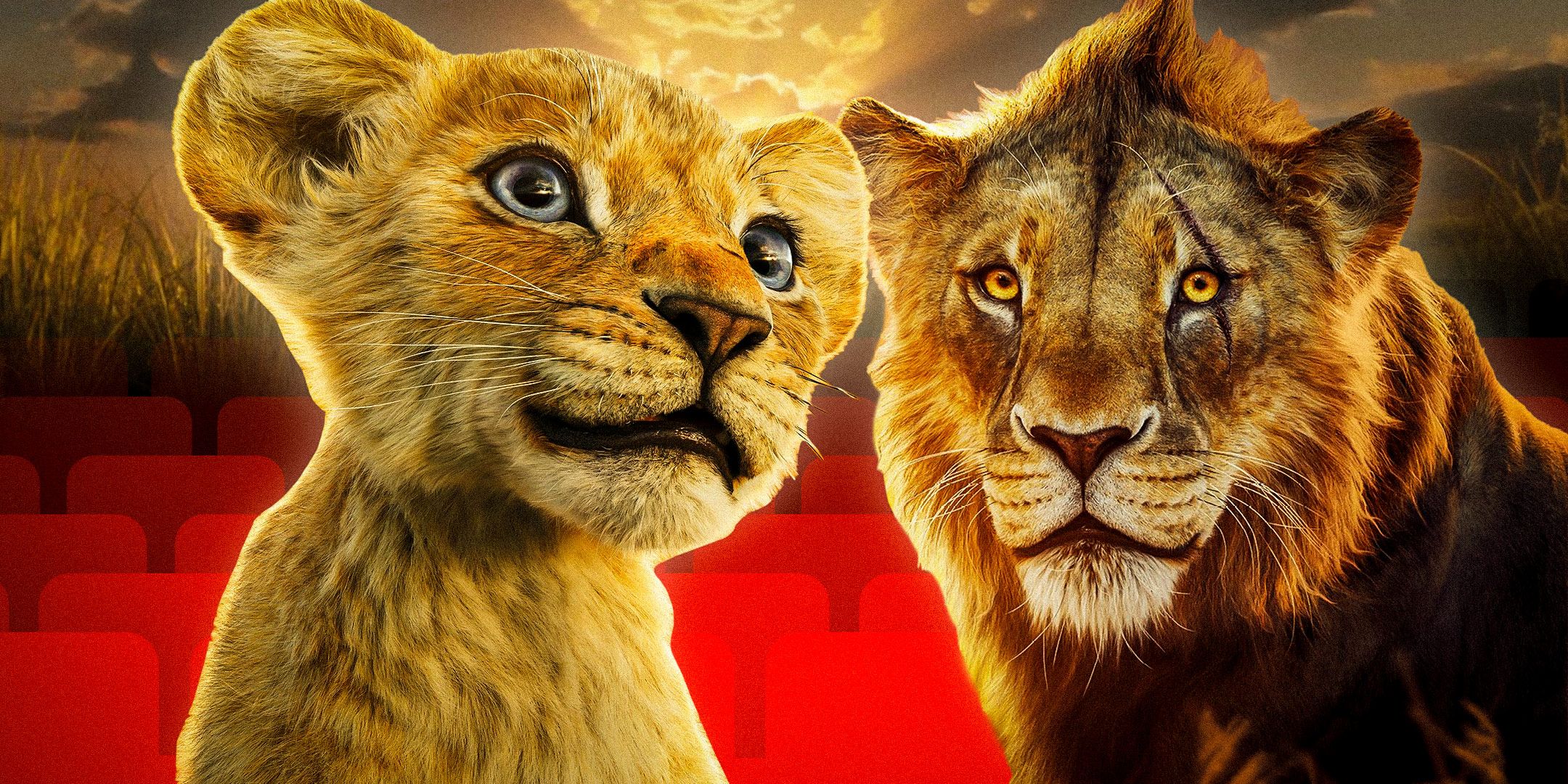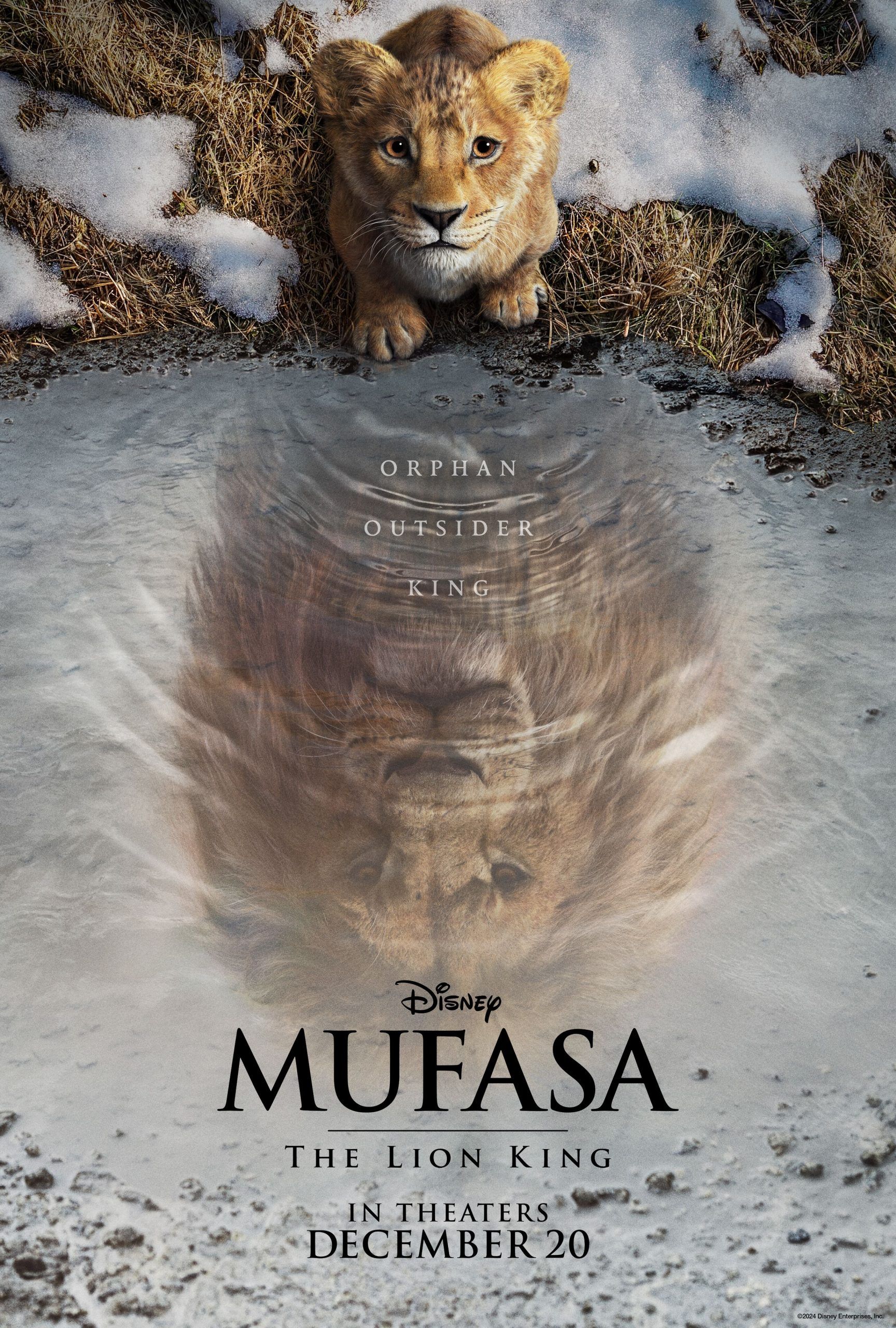Warning: This list contains spoilers for Mufasa: The Lion King.Mufasa: The Lion King premiered on December 20, 2024, as a prequel (and somewhat of a sequel) to Disney’s 2019 Lion King remake. The latter received mixed reviews from both critics and audiences for many reasons, with it simply not being necessary standing out as the most obvious one. However, in this day and age, one can understand the need to upgrade and polish even the best of Disney’s animated movies. Unfortunately, Mufasa: The Lion King doesn’t seem to be a winner in this department either.
Much like its predecessor, Mufasa faced mixed reviews upon its release, making one wonder if all those people simply watched the same movie. From the get-go, it was clear that viewers expected an engaging backstory for Mufasa that would enrich the original narrative. Yet, Mufasa appears to have not quite delivered, and there are a few possible reasons why that may be.
10
Mufasa Has Mediocre Music
The New Lion King Score Failed To Live Up To The Classic
Even though some have expressed their appreciation for Lin-Manuel Miranda’s contributions, Mufasa is largely underwhelming on the musical front, according to many viewers and critics. Predictably, the songs were compared to the original Lion King soundtrack, primarily composed by the legendary Elton John, which did not do the new score any favors. Even Elton John himself said that the 2019 remake of The Lion King messed up his music, and it appears the public opinion is similar for the 2024 version.
While the movie introduced some good tracks, such as “Tell Me It’s You” and “Bye Bye,” which arguably added depth to the story and the characters who performed them, the overall music of Mufasa failed to meet admittedly sky-high expectations. Instead of delivering the quintessential Disney magic audiences have come to cherish, the soundtrack left many feeling disappointed and was deemed “mediocre” by FandomWire.
9
Mufasa’s Animation Style Is Soulless
Mufasa Has An Uncanny Valley Effect Nobody Expected
Many have criticized Mufasa for its soulless animation style (or just generally being part of a “soulless machine,” via THR), which sparked considerable controversy online due to its hyperrealistic renderings of the animals. The movie adopted a photorealistic approach, aiming to create lifelike creatures with intricate details in fur, skin, and movement. While the technical achievements were undoubtedly impressive, the emotional impact of the characters was notably absent.

Related
15 Best Animated Disney Movie Soundtracks, Ranked
As Disney celebrates its 100th anniversary, here’s a look back at the best soundtracks that make up their iconic, timeless animated movies.
Despite clearly expressing emotions, the animals in the movie somehow still feel strangely lifeless. This paradox of hyperrealism combined with a lack of expressive warmth or depth left many viewers with a sense of disconnect and a longing for the charm of classic Disney animation. The uncanny valley effect was probably the last thing anyone wanted to experience in a Lion King movie, and that seems to have been one of the main reasons Mufasa got such mixed reviews.
8
Mufasa’s CGI Is Low-Effort
Mufasa’s CGI Overload Failed To Enhance Emotional Impact
In addition to failing to deliver the quintessential Disney animation charm, Mufasa‘s use of CGI has been described as painful to watch by many theatergoers. At the same time, the effects managed to be both underwhelming and overbearing, offering very little in terms of creating an emotionally engaging world. Despite the film’s clear attempts to push the boundaries of digital animation, it failed to fully harness the potential of CGI in a way that improved the storytelling.
Instead of enhancing the viewing experience, the CGI often distracted from it, making it no surprise that it was a common point of criticism among viewers.
While nobody expected to see a full-on brawl between two lions or a death on-screen in Mufasa, the film missed the opportunity to use CGI properly for moments of heightened emotion, like battles, dangerous face-offs, or moments of raw ferocity. Instead of enhancing the viewing experience, the CGI often distracted from it, making it no surprise that it was a common point of criticism among viewers.
7
Mufasa Has Questionable Plot Points
Mufasa’s Overstuffed Story Has Pacing Issues
While perhaps a controversial take, Mufasa introduced some questionable plot points to the Lion King canon, which don’t even serve the story of the movie in its own right. Despite being a prequel/sequel to an iconic story, the film struggles with pacing and narrative flow at times. Some moments felt rushed or glossed over, while others were unnecessarily cluttered, making the plot feel both fragmented and overstuffed.

Related
How Each Disney Remake Compares To The Original On Rotten Tomatoes
Disney’s classic animated movies are all getting a live-action adaptation, but Disney’s remakes don’t always compare well in Rotten Tomatoes.
A prime example of this was Timon and Pumbaa (voiced by Billy Eichner and Seth Rogen, respectively). The duo are of the most likable characters in the original Lion King, helping to balance the more dramatic themes. However, in Mufasa, their presence is somewhat forced and out of place, with their role in the plot making little sense. Rather than feeling like natural participants in the storyline, the pair’s appearances seems more like obligatory nods to fans of the original, which adds little to the progression of the narrative.
6
Mufasa’s Messy Narrative Fit
Mufasa’s Fragmented Plot Has An Unfinished Feeling
Mufasa‘s awkward place in the overall Lion King timeline seems to be another major reason for its mixed reviews. As both a prequel and a sequel to the 2019 Lion King remake, the film had the challenging task of weaving together the past and future of the iconic Disney characters while still offering something fresh. However, the execution left many viewers feeling confused.
With flashbacks, completely new plot lines, and an entire set of never-before-seen characters, the film’s structure often lacks clarity in how it connects to the original Lion King‘s events, making it harder for some to follow the story. The attempt to satisfy both new and old fans of The Lion King only seemed to complicate the narrative, as the film didn’t fully commit to either the past or the future, leaving both timelines feeling somewhat incomplete.
5
Mufasa & Scar’s Family Dynamics
Mufasa & Scar’s Relationship Was A Surprise For Many
Another possible reason that Mufasa received mixed reviews could have been the decision to spotlight the now-controversial family dynamic between Mufasa (Aaron Pierre) and Scar (Kelvin Harrison Jr.). In the original film, it is implied that the two lions are brothers by blood, with their sibling rivalry being a central driver of the story. It is their relationship that adds significant emotional depth and stakes to their conflict.
In the original Lion King film, it is implied that the two lions are brothers by blood, with their sibling rivalry being a central driver of the story.
However, in the 2024 installment, it is confirmed that Mufasa was actually adopted. Even though Mufasa and Scar’s history and relationship in The Lion King have previously been addressed by the filmmakers, not everybody was aware of the fact the pair were not related, which is why it might have left a sour taste for them. In any case, Mufasa arguably lost some of the complexity that made the pair’s rivalry so compelling.
4
Scar’s Redemption Arc
Mufasa Humanizing A Villainous Legacy
In Mufasa, we find out that Scar was originally named Taka. While audiences have come to know and love him as one of the most iconic movie villains even, he has now unexpectedly become a Disney villain who is almost a hero. As soon as it is established that Mufasa and Taka aren’t biological brothers, the fact that Mufasa took over the throne from him makes little sense.
In Mufasa: The Lion King, it is revealed that Taka got his iconic scar as he courageously stepped in to protect Mufasa from Kiros during a fight.
Granted, Taka is not the firstborn, which means he was never first in line to rule the Pride Lands, but choosing a newcomer who isn’t directly related to anybody in the pride des not sit well with some. At times, it feels like this narrative was somewhat of an attempt to humanize Scar and provide a backstory that softened his villainous character. Even though this twist did add depth to Scar’s character, it also muddled the clear-cut morality that The Lion King had previously established.
3
Mufasa’s Low Emotional Impact
Mufasa Has A High budget, No Emotions
When too much CGI meets an arguably disheveled narrative, a lack of emotional depth is inevitable at some point. According to both critics and viewers, Mufasa often failed to deliver the emotional highs it was aiming for, leaving certain moments in the movie glossed over. With a hefty budget of $200 million, which makes this Lion King installment one of the most expensive in the franchise, one would expect there to be at least some emotional resonance happening.

Related
Where To Watch Mufasa: The Lion King – Showtimes & Streaming Status
Disney has brought the Lion King franchise back with a prequel. Here’s where to watch Mufasa: The Lion King in theaters, on streaming, and on digital.
Despite delivering groundbreaking new material for the Lion King franchise, the 2024 installment evidently lacks the richness that made the original movie so iconic. The emotional impact of the main relationship between brothers that was supposed to be a driving force in the narrative was, unfortunately, lost somewhere along the way, likely also contributing to Mufasa‘s mixed reception.
2
Mufasa’s Overstretched Runtime
Mufasa Is 118 Minutes Of Drained Impact
For many, Mufasa is unnecessarily too long. With a runtime of nearly two hours (118 minutes to be exact), the movie is just as long as the 2019 film and nearly half an hour longer than all the other animated installments in the franchise. Despite being a part of one of the most beloved Disney stories of all time, the film could have been more impactful with a more concise approach. This is especially true when characters like Timon and Pumba are almost only there as Easter eggs.
The extended runtime also contributes to a sense of fatigue, as the plot struggles to maintain momentum at times. While there were some scenes that had the potential to be explored further, others felt padded, making the length feel even more noticeable. As a result, Mufasa lost some more of its impact, as the slower pace made it harder for viewers to stay engaged and emotionally invested.
1
Mufasa Is A Profit-Driven Remake
Mufasa Lacks The Disney Spark
As anticipated with remakes of a beloved Disney classic, many viewers felt that the hyperrealistic Lion King films lack a real reason to exist within a larger context. Since the 2019 movie already felt unnecessary to many, questions about Disney’s decision to revisit the Lion King franchise started popping up even before Mufasa hit the theaters. For most fans, the 1994 animated masterpiece stands as a near-perfect story that requires no further reinterpretation.
However, while Disney’s Lion King plan might be terrifying, it’s likely going to make billions, which seems to answer the question of its purpose. Still, this perceived lack of creative intent is undoubtedly one of the key factors in the mixed reception of Mufasa: The Lion King, with fans longing for originality rather than more reimagined content from an already cherished story.
Source: Rotten Tomatoes, FandomWire, THR

